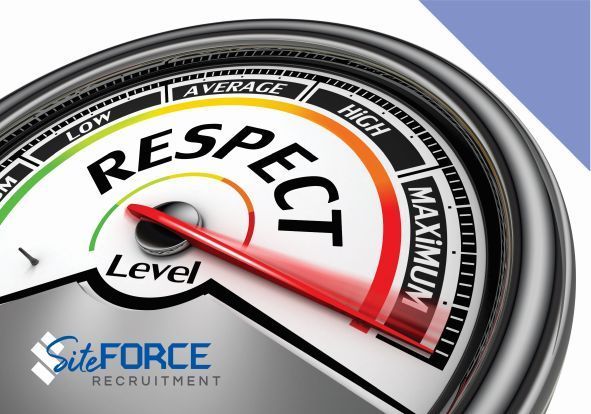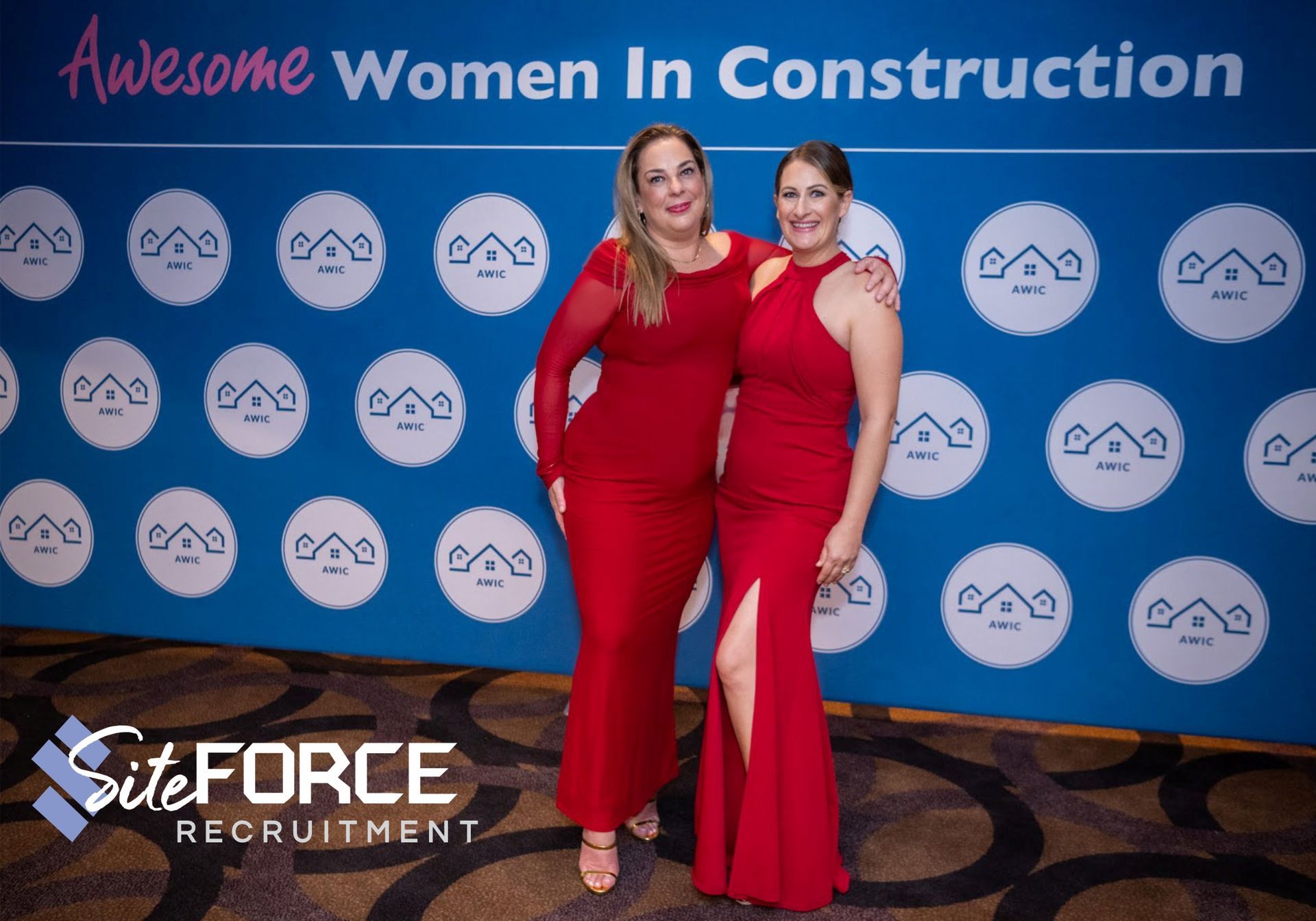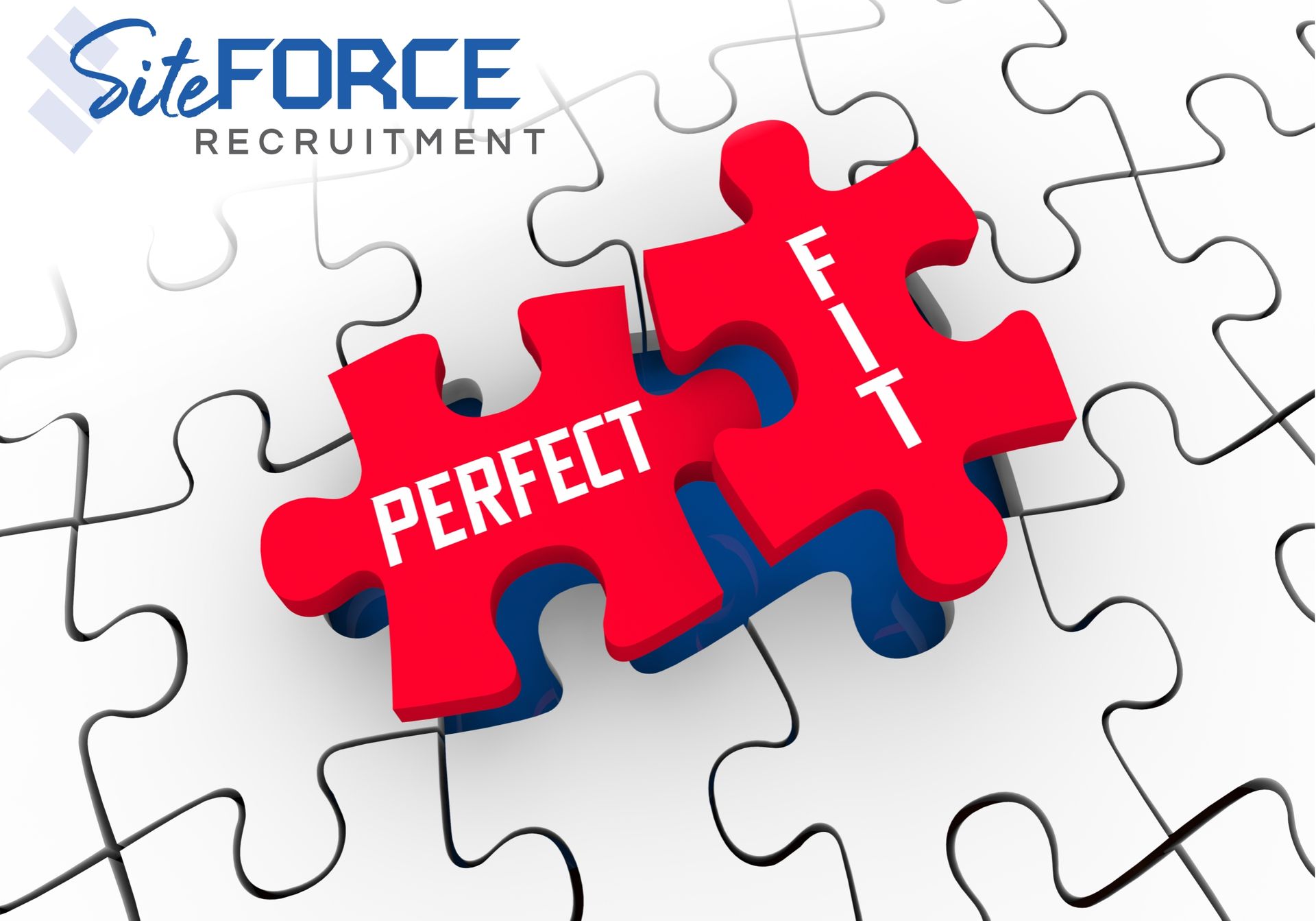Protect Your Business: 4 Critical Due Diligence Checks You Can't Afford to Skip
What a Great Recruiter Does

The construction industry in Australia is a vital sector that contributes significantly to the country's economy. As the sector continues to grow, so does the demand for skilled workers. However, finding the right people for the job can be challenging. Employers need to carry out due diligence when employing someone in the construction industry to ensure that they are qualified, experienced, and possess the right personality traits for the job.
At SiteForce Recruitment, we pride ourselves on our deep industry connections which provides a significant advantage over those who do not. These connections allow us to quickly and easily identify and assess qualified candidates for open positions. Our network includes current and former colleagues, industry leaders, and influencers, employers of choice, and industry associations, allowing us to tap into a wealth of knowledge and experience of sites, people, employers, industry trends, market conditions and emerging talent. By maintaining strong relationships with industry professionals, we also can leverage our network to identify passive candidates who may not be actively looking for new opportunities.
In addition, our knowledge of which employers and job sites have a good reputation helps us build trust with candidates quickly. This knowledge can help identify the most promising opportunities and employers, ensuring that candidates are matched with positions that align with their goals and values. The right person in the right job. This, in turn, can lead to higher job satisfaction, improved retention rates, and reduced turnover costs for employers. By staying up-to-date with industry news and developments, we offer valuable insights and advice to candidates and clients alike, further strengthening their reputation and credibility in the industry. Ultimately, having deep industry connections and knowledge is essential for us to be efficient and effective and make a meaningful impact on their clients' talent acquisition strategies.
When a recruiter is not experienced or does not carry out due diligence well, it can lead to numerous problems for the employer and the company. Hiring the wrong person can result in significant financial losses, as the cost of training, rehiring, and loss of productivity can be high. Furthermore, it can damage the company's reputation and cause tension within the team, as other employees may have to pick up the slack or correct the mistakes of the new employee. Additionally, if an employee is not qualified or does not have the necessary licenses, it can result in safety hazards and violations, putting other employees and the company at risk of legal action. Overall, the consequences of not carrying out due diligence when employing someone in the construction industry can be severe, and it is essential to take the necessary steps to ensure that the right person is hired for the job.
Due diligence involves conducting a thorough investigation of a potential employee's background, skills, and experience to determine their suitability for the role. The following are some essential factors to consider when employing someone in the construction industry in Australia.
1. Personality Indicators
In addition to technical skills and industry knowledge, it is also essential to consider a potential employee's personality traits. Construction work can be physically demanding and can involve long hours and tight deadlines. Therefore, it is essential to employ someone who can handle the pressures of the job and work well under stress.
The following the Top 10 personality indicators to consider when employing someone in the construction industry:
a) Emotional Intelligence: In the construction industry, workers who are emotionally stable and resilient are better able to handle the physical and mental demands of the job. They are also better able to cope with the stresses and challenges that can arise on a construction site.
b) Work ethic: An employee with a strong work ethic is essential in the construction industry. They should be reliable, punctual, and committed to delivering high-quality work.
c) Communication skills: Effective communication is essential in the construction industry, as it involves working closely with a team of professionals. An employee should have strong communication skills to ensure that projects are completed efficiently and effectively.
d) Adaptability: The construction industry is constantly changing, and an employee should be able to adapt to new technologies and processes quickly.
e) Attention to detail: In the construction industry, even the smallest mistake can lead to significant problems. Therefore, an employee should have excellent attention to detail to ensure that projects are completed to a high standard.
f) Problem-solving skills: Construction work involves encountering many challenges, and an employee should be able to solve problems quickly and effectively.
g) Openness: In the construction industry, workers who are open-minded and creative are often better able to come up with innovative solutions to complex problems. This is important for improving safety, efficiency, and productivity on the job site.
h) Conscientiousness: Construction projects require a high level of organization, planning, and attention to detail. Workers who are conscientious are better able to follow safety protocols, manage their time effectively, and ensure that work is completed to a high standard.
i) Extraversion: In the construction industry, workers who are comfortable interacting with others and can effectively communicate with team members, supervisors, and clients are better able to collaborate effectively and ensure that projects are completed on time and on budget.
j) Agreeableness: Construction projects require a high level of teamwork and cooperation between workers. Workers who are agreeable and empathetic are better able to work collaboratively with others, resolve conflicts, and build positive working relationships.
2. Soft Skill Assessment
When recruiting for a job, assessing a candidate's soft skills is just as important as evaluating their technical abilities. Soft skills refer to the non-technical skills and qualities that a person possesses, such as communication skills, teamwork, problem-solving, adaptability, and emotional intelligence. These skills are crucial in today's workplace as they enable employees to work effectively with others, navigate complex situations, and succeed in their roles. To assess someone's soft skills during the recruitment process, employers can use techniques such as behavioural interviewing, personality assessments, and role-playing exercises. By identifying candidates with strong soft skills, employers can build a team that not only has the technical skills necessary to get the job done but also possesses the interpersonal abilities needed to work collaboratively and achieve success.
3. Background Checks
Employers should carry out thorough background checks on potential employees to ensure that they have a clean record. This includes checking for criminal history, driving records, and previous employment references.
A criminal record check is especially important in the construction industry as employees are required to work on construction sites that often have stringent safety regulations. Any criminal history, such as theft or assault, can pose a risk to other workers and the company's reputation.
Employers should also check the candidate's driving record, as they may be required to operate heavy machinery or drive company vehicles. Any history of reckless driving or driving under the influence can be a red flag.
Previous employment references can provide valuable insight into a candidate's work ethic, skills, and experience. Employers should contact the candidate's previous employers to obtain a reference and verify the candidate's work history and experience.
4. Licenses and Qualifications
In the construction industry, employees are required to have specific licenses and qualifications to operate heavy machinery or work on construction sites. Employers should ensure that the candidate has the necessary licenses and qualifications for the job.
It is also important to verify that the licenses and qualifications are valid and up-to-date. Employers can do this by contacting the relevant licensing or certification authority or checking their online databases.
Of course, you can do this yourself, but if you would like the benefit of working with us and our industry experience, give us a call.
Related articles:
Hello New World - A Return To Profits
Boomers, Zoomers & Beyond: Adapting to Multi-Generational Workplaces
SiteForce Recruitment specialise in labour-hire and permanent recruitment in the construction industry. We are committed to valuing people, safety and well-being, collaboration, trust and of course – results!
CONNECT with us via our contact page or bookings links on our website if you are looking to recruit for, get your dream job, or join our amazing labour force team.
#siteforcerecruitment #recruitment #labourhire #brisbanejobs











